The thing is, some marketing professionals get it wrong. A case in point is the Mitsubishi Starion. The Japanese carmaker is adamant that Starion stands for the Star of Orion. But then again, legend has it the Japanese find it hard to pronounce stallion. A TV commercial for the Starion from the early 1980s depicts the car and Starion written below a stallion’s head. Coincidence? Not really, not by a long shot.
On the other hand, some manufacturers get it right the first time around. Glossy magazines for men always make lists such as Top 10 Coolest Car Names and Top 10 Most Masculine Cars. This is autoevolution, though, and we don’t do glossy. Therefore, we won’t bore you with the Ford Mustang, Dodge Charger, Vauxhall Magnum, AMC Javelin, Mercury Marauder, Hudson Hornet, and Jensen Interceptor. These cars are too famous, too renowned, too yesterday’s news.
Instead of those, I chose to offer you a glimpse into the awe-inspiring domain of obscure cars with weird names. Like Weird Al Yankovic weird, the type of weird that could make you roll on the floor laughing your socks off or spit out your cereal. This may not come as a surprise to you, but five of the cars featured in the following top 10 come from Japan. Two are from China, two are from Italy, and the remaining car is a German contraption that shares its oily bits with the Volkswagen Beetle.
Are you ready? Good. Now let’s let it rip:Great Wall Coolbear
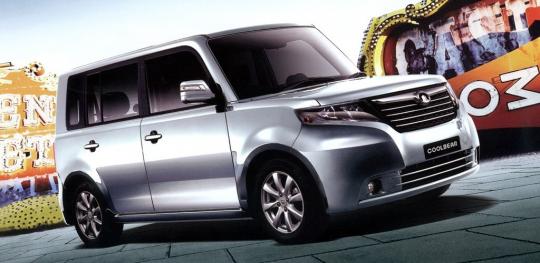 Somewhere in China, there’s a car-making company that goes by the name of Great Wall. Pretty suggestive name, but I can’t find anything suggestive about one of the models sold by Great Wall Motors. Introducing the Scio… uhm, the Coolbear.
Somewhere in China, there’s a car-making company that goes by the name of Great Wall. Pretty suggestive name, but I can’t find anything suggestive about one of the models sold by Great Wall Motors. Introducing the Scio… uhm, the Coolbear.
Yes, it’s obvious the Coolbear is a rip-off of every boxy hatchback with a Scion badge. From the sides, I can see the second-generation xB. From the rear, the first-gen xB comes to mind. And the front? That resembles the 2005 Scion t2B Concept.
Other than the amusing name, I can’t find anything to hate about the Coolbear. It has ample room inside, it looks sharp, it has a four-cylinder gasoline engine and a CVT. Then again, I’d rather have a Kia Soul over the Great Wall Coolbear because there’s no better argument than a 10-year/100,000-mile limited powertrain warranty.Volugrafo Bimbo
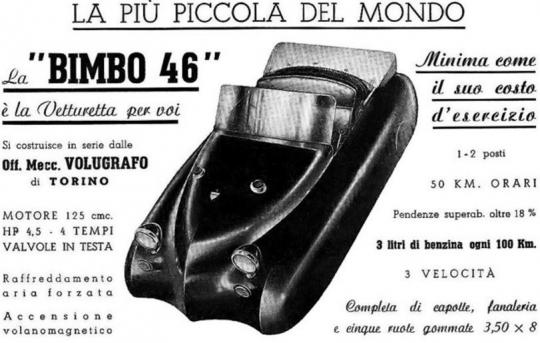 What does the Volugrafo Bimbo have to do with an attractive woman with loose morals? The hell if I know. Created a year after the end of WWII, the Bimbo is one of few cars specifically developed to mobilize Italy, though it didn’t conclude its purpose.
What does the Volugrafo Bimbo have to do with an attractive woman with loose morals? The hell if I know. Created a year after the end of WWII, the Bimbo is one of few cars specifically developed to mobilize Italy, though it didn’t conclude its purpose.
Mickey Mouse would look fantastic behind the wheel, but the truth is that you’re looking at an affordable microcar without doors or reverse, which weighs 275 pounds (125 kilograms). Curious what’s under the hood of this clown car? Don’t hold your breath for a V8. Here goes: one cylinder, 125 cubic centimeters, 4.5 HP, air-cooled.
If it started raining, the best the owner could do was to raise a canvas roof. Out of a production run of approximately 60 examples, nobody knows how many are still left in existence. At least two Bimbo microcars are preserved as museum exhibits.Geely Rural Nanny
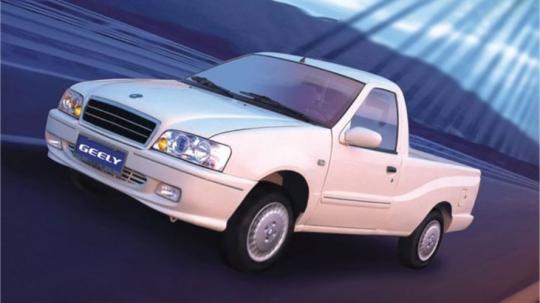 Great! Just great! “I’ve always wanted a Rural Nanny!” said no one ever, yet the peeps at Geely found the name appropriate. Before Geely brought the Rural Nanny to the Chinese market, there were hardly any small pickup trucks in the Middle Kingdom.
Great! Just great! “I’ve always wanted a Rural Nanny!” said no one ever, yet the peeps at Geely found the name appropriate. Before Geely brought the Rural Nanny to the Chinese market, there were hardly any small pickup trucks in the Middle Kingdom.
When it was launched in 2001, the Rural Nanny became an instant commercial hit even though it was a niche product by all accounts. Based on the fourth-generation Daihatsu Charade, the Rural Nanny came with a 1.0-liter engine with just 51 HP (38 kW).
The top speed offered by such a little engine and a four-speed stick shift? Just 61 mph (98 km/h). But then again, this small-scale workhorse started at the equivalent of $7,100. To end on a high note, did you know that Geely also offered an Urban Nanny?Volkswagen Thing
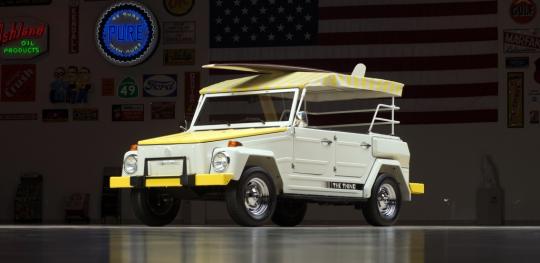 Sold as the Kurierwagen in the West Germany, the Volkswagen Typ 181 set foot on American soil as the Volkswagen Thing. I’m not kidding, its name is Thing. Staying true to is name, the Thing appears to be something that has been drawn with a ruler.
Sold as the Kurierwagen in the West Germany, the Volkswagen Typ 181 set foot on American soil as the Volkswagen Thing. I’m not kidding, its name is Thing. Staying true to is name, the Thing appears to be something that has been drawn with a ruler.
Think of it as the less rugged successor of the Volkswagen Kubelwagen military vehicle. Similar to its forerunner, the Thing was underpinned by a Beetle chassis and it was motivated by an arse-mounted air-cooled flat four. Dependable is the name of the game here.
If you’re interested in one, it’s not hard to find a Thing on Craigslist or eBay. The only problem is that you can’t find a good example for less than $10,000 because the unpretentious Volkswagen Thing is one of the fastest appreciating collectibles out there.Lancia Florida
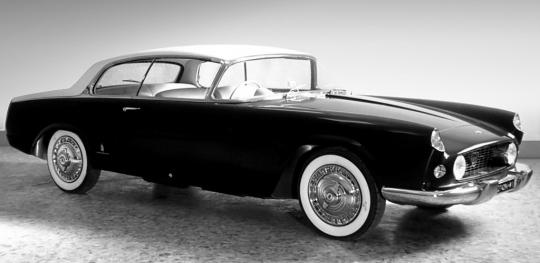 If you type “Why is Florida” in the Google search bar, you will get two suggestions: “so hot” and “so crazy.” Everyone knows that Florida is a little bit of both, but why would Lancia call two of its design studies Florida? I don’t know, I am pretty staggered as well.
If you type “Why is Florida” in the Google search bar, you will get two suggestions: “so hot” and “so crazy.” Everyone knows that Florida is a little bit of both, but why would Lancia call two of its design studies Florida? I don’t know, I am pretty staggered as well.
Those two concepts are the forerunners of the Lancia Flaminia, the bite-the-back-of-your-hand-beautiful family of models that came after the Lancia Aurelia grand tourer. The exterior design of the Florida prototypes was so successful, other automakers such as Peugeot, Borgward, DKW, and even Pontiac took inspiration for their own models.
Two years after it finished the Florida I design study, the Italian automaker debuted the Flaminia at the 1957 Geneva Motor Show. No less than 12,633 Flaminia units were sold over 13 years of production. The most collectible and the most expensive are the coupes because hardcore car collectors have a weakness toward coachbuilt bodies.Daihatsu Naked
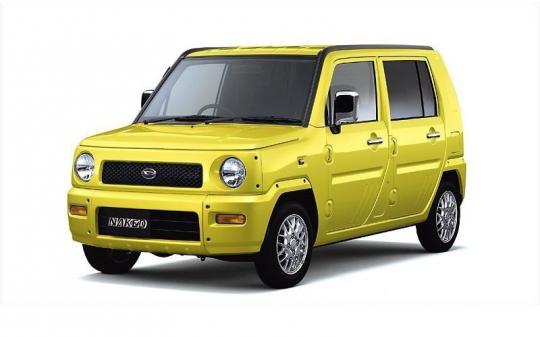 Yup, here’s yet another contraption from Japan with a nameplate that doesn’t have anything to do with a personal means of transportation. The Daihatsu Naked is nothing more than a kei car with a conspicuous moniker and so
Yup, here’s yet another contraption from Japan with a nameplate that doesn’t have anything to do with a personal means of transportation. The Daihatsu Naked is nothing more than a kei car with a conspicuous moniker and some sort of a personality crisis.
The cabin design copied elements from the 1980 Fiat Panda, but I forgive Daihatsu for it. The thing is, the Naked is one of the first small cars to adopt the rough and ready exterior styling of hardcore off-roaders such as the Jeep Wrangler and Suzuki Jimny.
After the 2000 Daihatsu Naked, car-making strongholds such as VW, Citroen, and Rover replicated the formula. If it weren’t for the Naked, chances are these cars would not have existed in 2016: Fiat 500X, Mazda CX-3, Chevrolet Trax, Honda HR-V, etcetera.Honda That’s
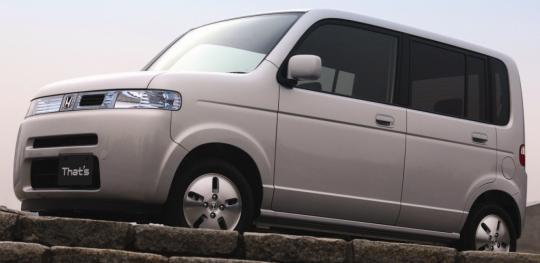 Can you even imagine how ridiculous it would be to walk into a Honda dealership and ask the salesperson “What’s that?” My vivid imagination can only think of a single reply: “That’s a That’s.” Absurd? Definitely. Rubbish? The Honda That’s is far from it.
Can you even imagine how ridiculous it would be to walk into a Honda dealership and ask the salesperson “What’s that?” My vivid imagination can only think of a single reply: “That’s a That’s.” Absurd? Definitely. Rubbish? The Honda That’s is far from it.
When it came to the Japanese market in 2002, the That’s was one of the most spacious kei cars thanks to its tall roof. Honda could make this thing roomy only by going up because Japan is extremely strict about the width and length of a kei car.
The That’s is based on the Honda Life and it was available with either a naturally aspirated 656 cc three-cylinder or a turbocharged version of that engine. Fun fact: the force-fed model of the third-gen Life was called the Life Dunk. Oh Japan, you so funny!Toyota Picnic
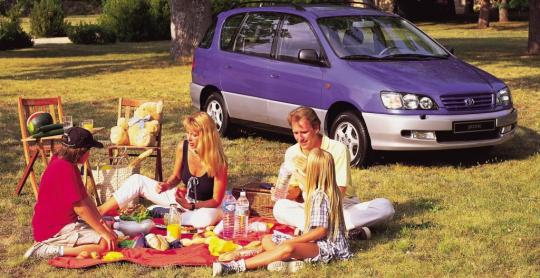 Better known as the Ipsum or Avensis Verso, Toyota used the Picnic nameplate for this compact multi-purpose vehicle in select export markets like Indonesia. Believe it or not, the Picnic was produced from 1995 to 2009 over the course of two generations.
Better known as the Ipsum or Avensis Verso, Toyota used the Picnic nameplate for this compact multi-purpose vehicle in select export markets like Indonesia. Believe it or not, the Picnic was produced from 1995 to 2009 over the course of two generations.
I can’t describe the Picnic as a bad means of transportation, although I don’t find it desirable. Think of it as a small minivan, a necessary evil for the family man. The thing is, who thought that it would be great for the manufacturer photographs of the Picnic to feature a family having a picnic?
For crying out loud, Toyota! Didn’t anyone tell you that you don’t need to take the name of your family-hauling MPV so literally? Thank God you’ve followed this act with the Toyota Verso, an accomplished compact multi-purpose vehicle with a normal name.Isuzu Mysterious Utility Wizard
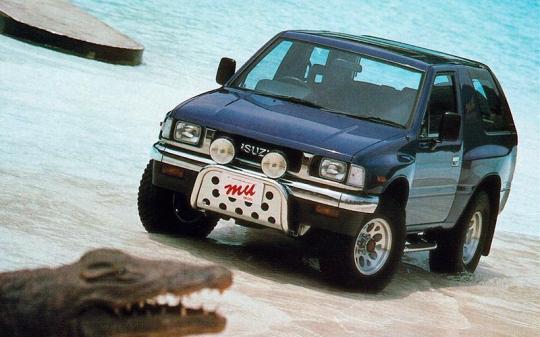 I… wait… what? Do you happen to know what a mysterious utility wizard is? I don’t wish to ask Isuzu for explanations because this isn’t the first time the Japanese brand makes a hash of its naming conventions. Case in point: the Isuzu GIGA 20 Light Dump.
I… wait… what? Do you happen to know what a mysterious utility wizard is? I don’t wish to ask Isuzu for explanations because this isn’t the first time the Japanese brand makes a hash of its naming conventions. Case in point: the Isuzu GIGA 20 Light Dump.
What you’re looking at here is a mid-size sport utility vehicle with a name that might sound cool in Japanese, but it fails to do so in English. As fate would have it, the Isuzu Mysterious Wizard is the car we have to thank for the Isuzu Rodeo and Vauxhall Frontera.
Despite the silly name and the little impact it had in its home market, this mid-size SUV became a best-seller in the United States, South America, and Europe. Even Honda sold a rebadged version of the Mysterious Utility Wizard, namely the Passport.Nissan Homy Super Long
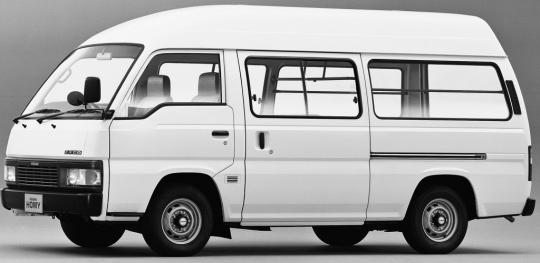 Please spare me from explaining what’s what with this Nissan. If you insist, I can tell you that this thing is super long because it is a van. As for the Horn… I mean Homy, don’t ask where that name came from because not even Nissan knows what it means.
Please spare me from explaining what’s what with this Nissan. If you insist, I can tell you that this thing is super long because it is a van. As for the Horn… I mean Homy, don’t ask where that name came from because not even Nissan knows what it means.
The Homy is the brainchild of the Prince Motor Company, an automaker that had been absorbed by Nissan in the 1960s. Believe it or not, the Nissan Homy Super Long shares its chassis with a pickup truck known as the Prince Homer. The question is, which Homer? The one with the Iliad or the main protagonist from The Simpsons?
I can’t be bothered, if I’m honest. The Nissan Homy ceased to exist in 1997, the year the Japanese automaker decided it would be best to eliminate the sexual innuendo and rename this thing accordingly.
On an ending note, what are the weirdest car names you’ve ever heard of?








